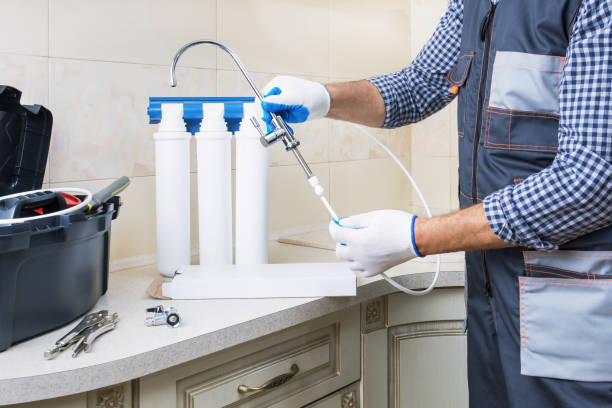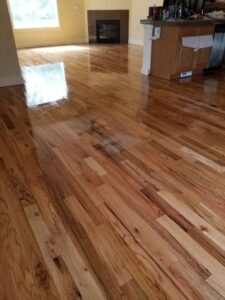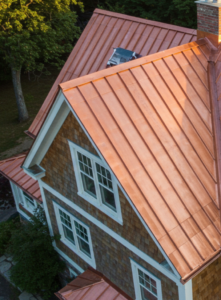Water is essential to our daily lives, and ensuring that it is clean and safe is more important than ever. Whether your home relies on municipal water or a private well, contaminants like sediment, chlorine, and bacteria can affect the quality of your water and your family’s health. A whole house water filter can be a game-changer, providing filtered water to every tap in your home. If you’re new to the world of home water filtration or considering a system upgrade, this guide will help you navigate the essentials with practical tips and friendly advice.
Why Consider a Whole House Water Filter?
A whole house water filter is exactly what it sounds like: a filtration system that treats water as it enters your home, ensuring every faucet, shower, and appliance receives clean water. This is especially valuable for homes relying on well water filtration systems, which often face unique challenges like iron, manganese, and harmful microorganisms.
Here’s why you might need one:
Improve Water Quality: Remove impurities like sediment, chlorine, and heavy metals.
Protect Appliances: Prevent buildup in dishwashers, washing machines, and water heaters.
Better Taste and Smell: Say goodbye to strange-tasting or foul-smelling water.
Healthier Skin and Hair: Filtered water reduces exposure to harsh chemicals during showers.
How to Choose the Right System
Selecting the right whole house water filter involves understanding your home’s water needs. Here are a few factors to consider:
Identify Your Water Problems
Start by testing your water. You can use at-home test kits or send a sample to a professional lab. If you’re on well water, you may face issues like high levels of iron, bacteria, or nitrates. On the other hand, municipal water often contains chlorine, fluoride, or traces of industrial contaminants.
Match the Filter to Your Needs
Different filters target different contaminants:
- Sediment Filters: Ideal for removing sand, rust, and large particles.
- Carbon Filters: Great for chlorine, bad odors, and improving taste.
- Iron and Manganese Filters: Perfect for well water systems with these specific problems.
- UV Filters: Effective for eliminating bacteria and viruses.
For well water users, a combination system incorporating several of these filters is often the best approach.
Flow Rate Matters
The flow rate of your filtration system should match your household’s water usage. A family of four, for instance, typically needs a system that can filter 10 to 15 gallons per minute (GPM) to ensure consistent pressure and supply.
Consider Maintenance and Costs
Think beyond the initial purchase price. Filters need regular replacement, and some systems are more maintenance-heavy than others. Ask these questions:
How often do the filters need replacing?
Can you handle the maintenance yourself, or will you need professional help?
Are replacement filters readily available?
Tips for Installing and Maintaining a Whole House Water Filter
Once you’ve chosen your filter, proper installation and maintenance are key to keeping it running smoothly.
Installation Tips
Location is Everything: Install the filter as close as possible to where water enters your home to protect all pipes and fixtures.
Hire a Professional: While DIY installation is possible for some systems, professional installation ensures everything is set up correctly, especially for well water filtration systems.
Check Space Requirements: Ensure there’s enough room for the system, including space for filter replacements.
Maintenance Advice
Follow a Schedule: Replace filters as recommended by the manufacturer to keep your water clean and your system efficient.
Inspect Regularly: Look for leaks, pressure drops, or unusual changes in water quality.
Flush the System: Periodically flush the filters to prevent clogging, especially if your water has high sediment levels.
Common Challenges with Well Water Filtration Systems
If you use a well water filtration system, you may encounter some unique challenges:
Iron and Manganese Buildup: These minerals can stain appliances and plumbing. Consider a specialized iron filter.
Hard Water Issues: Add a water softener to combat hard water’s effects on plumbing and skin.
Bacterial Contamination: A UV filter can eliminate bacteria and viruses for safer drinking water.
Dealing with these issues proactively ensures your filtration system operates effectively, providing your home with safe and clean water.
Benefits You’ll Notice Right Away
Installing a whole house water filter has a noticeable impact on your daily life:
Cleaner dishes, laundry, and plumbing fixtures.
Better-tasting coffee, tea, and cooking water.
Improved comfort during showers with softer water.
Long-term savings by extending the life of appliances and reducing plumbing repairs.
Final Thoughts
Investing in a whole house water filter or a well water filtration system is one of the smartest decisions you can make for your home and family. By understanding your water’s unique needs, choosing the right system, and staying on top of maintenance, you’ll enjoy cleaner, safer water for years to come.
Whether you’re battling hard water, iron stains, or just want better-tasting water from every tap, a whole house system makes a difference. With a little planning and the right tools, you can make your home a haven of fresh, pure water.





More Stories
How to Prepare for Plastic Surgery in Mission Viejo: A Step-by-Step Guide
Finding the Right Plastic Surgeon in Orange CA: What You Need to Know
Is Your Relationship Stuck? A Guide to Choosing the Best Marriage Intensives in Colorado